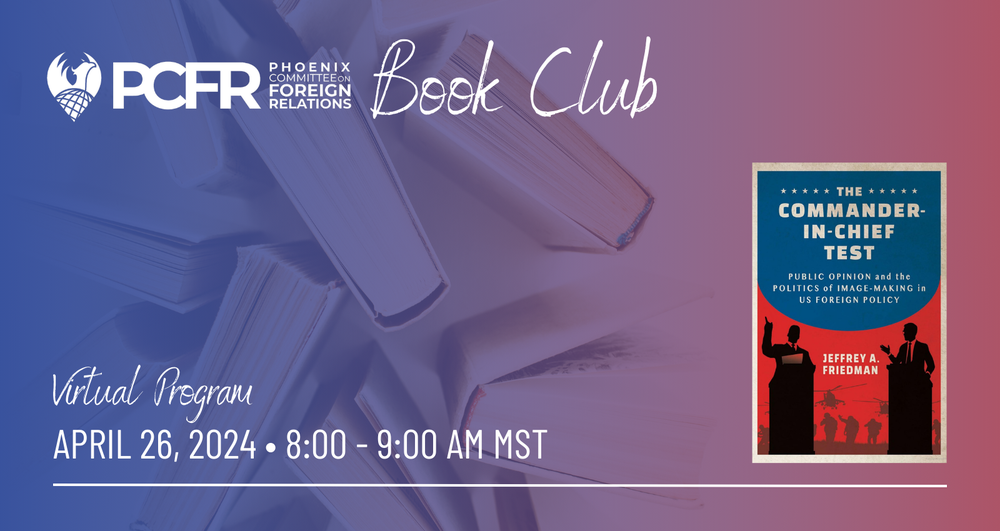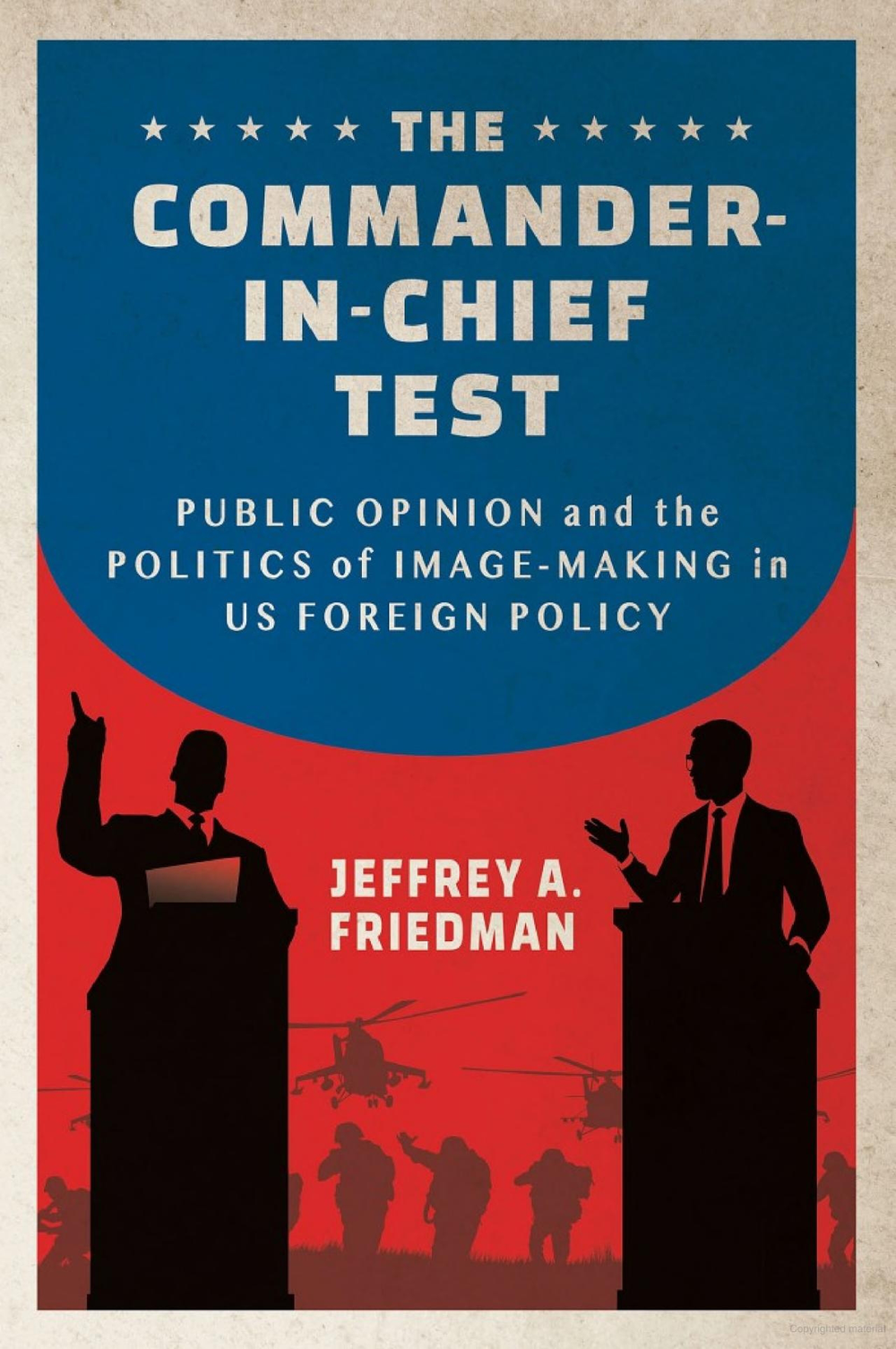Event Details

Member Exclusive!
Join us for a discussion on, The Commander-in-Chief Test: Public Opinion and the Politics of Image-Making in US Foreign Policy, written by Dr. Jeff Friedman of Dartmouth College.
In The Commander-in-Chief Test, Jeffrey A. Friedman offers a fresh explanation for why Americans are often frustrated by the cost and scope of U.S. foreign policy—and how we can fix that for the future.
Whether you've finished the book, are halfway through, or it is just on your list, come and share your thoughts on the impacts of presidential politics on U.S. foreign policy.
Why is this Important for Arizona?
With the upcoming U.S. presidential election, this discussion will offer a fresh perspective on Americans' frustrations with the cost and scope of US foreign policy. The book challenges the notion that foreign policy decisions are solely driven by elites, highlighting the significant role of public opinion. With insights into the disconnect between public sentiment and foreign policy actions, particularly regarding rising defense budgets and "forever wars," the event sheds light on how voters prioritize leaders with the right attributes for an effective commander-in-chief. This discussion is crucial for Arizonans, offering valuable lessons on the impact of image-making on foreign policy and empowering them to assess leadership choices in alignment with public preferences.



